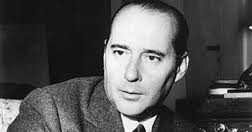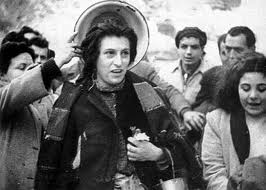The Miracle: Difference between revisions
m (1 revision) |
No edit summary |
||
| (2 intermediate revisions by the same user not shown) | |||
| Line 1: | Line 1: | ||
====Date: [[:Category:1951 | ====Date: [[:Category:1951|1951]]==== | ||
====Region: [[:Category:North America|North America | ====Region: [[:Category:North America|North America]]==== | ||
====Subject: [[:Category:Religious|Religious | ====Subject: [[:Category:Religious|Religious]]==== | ||
====Medium: [[:Category:Film Video|Film Video | ====Medium: [[:Category:Film Video|Film Video]]==== | ||
---- | ---- | ||
'''Artist:''' Roberto Rossellini, Italian film Director | [[File:Rossellini2.jpg|right]] | ||
'''Artist:''' Roberto Rossellini (1906 - 1977), Italian film Director | |||
'''Confronting Bodies:''' New York Board of Regents | '''Confronting Bodies:''' New York Board of Regents | ||
''' | '''Date of Action:''' 1951 | ||
'''Location:''' New York City | '''Location:''' New York City, USA | ||
'''Description of Artwork:''' The 40 minute film, | '''Description of Artwork:''' The 40 minute film, ''The Miracle'', featured Anna Magnani as a peasant woman who believed that she was the Virgin Mary. The film was imported into the United states in 1949 by a Polish-Jewish immigrant, Joseph Burstyn. | ||
[[File:Rossellini.jpg|left]] | |||
'''The Incident:''' ''The Miracle'' was released in Italy in 1948 over the objections of the Roman Catholic Church. Although the film made it through U.S. customs without trouble from the official censors, the Board of Regents came under heavy pressure from the Roman Catholic Archdiocese to revoke the film's license on the ground that the work was "sacrilegious." ''The Miracle'' lost its license and the film's distributor, Joseph Burstyn, appealed the decision. The New York Appeals Court backed the Board of Regents decision. | |||
'''Results of Incident:''' The U.S. Supreme Court overturned the decision in 1952, pointing out that it was unconstitutional for government bodies to impose religious orthodoxies on film or any other art and that "a state may not ban a film on the basis of a censor's conclusion that it is sacrilegious." Furthermore, "It is not the business of government... to suppress real or imagined attacks upon a religious doctrine, whether they appear in publications, speeches or motion pictures." | |||
'''Results of Incident:''' The U.S. Supreme Court overturned the decision in 1952, pointing out that it was unconstitutional for government bodies to impose religious orthodoxies on film or any other art and that "a state may not ban a film on the basis of a censor's conclusion that it is sacrilegious" | |||
'''Source:''' New York Public Library, New York City | '''Source:''' New York Public Library, New York City | ||
[[Category:1951 | [[Category:1951]] | ||
[[Category:]] | [[Category:1950s]] | ||
[[Category:]] | [[Category:20th century]] | ||
[[Category:North America]] | [[Category:North America]] | ||
[[Category:Religious]] | [[Category:Religious]] | ||
[[Category:Film Video]] | [[Category:Film Video]] | ||
[[Category:Roberto Rossellini, Italian film Director]] | [[Category:Roberto Rossellini, Italian film Director]] | ||
{{DISPLAYTITLE:<span style="font-style: italic;">The Miracle</span>}} | |||
{{DEFAULTSORT:Miracle, The}} | |||
__NOTOC__ | __NOTOC__ | ||
Latest revision as of 16:38, 10 January 2012
Date: 1951
Region: North America
Subject: Religious
Medium: Film Video
Artist: Roberto Rossellini (1906 - 1977), Italian film Director
Confronting Bodies: New York Board of Regents
Date of Action: 1951
Location: New York City, USA
Description of Artwork: The 40 minute film, The Miracle, featured Anna Magnani as a peasant woman who believed that she was the Virgin Mary. The film was imported into the United states in 1949 by a Polish-Jewish immigrant, Joseph Burstyn.
The Incident: The Miracle was released in Italy in 1948 over the objections of the Roman Catholic Church. Although the film made it through U.S. customs without trouble from the official censors, the Board of Regents came under heavy pressure from the Roman Catholic Archdiocese to revoke the film's license on the ground that the work was "sacrilegious." The Miracle lost its license and the film's distributor, Joseph Burstyn, appealed the decision. The New York Appeals Court backed the Board of Regents decision.
Results of Incident: The U.S. Supreme Court overturned the decision in 1952, pointing out that it was unconstitutional for government bodies to impose religious orthodoxies on film or any other art and that "a state may not ban a film on the basis of a censor's conclusion that it is sacrilegious." Furthermore, "It is not the business of government... to suppress real or imagined attacks upon a religious doctrine, whether they appear in publications, speeches or motion pictures."
Source: New York Public Library, New York City

